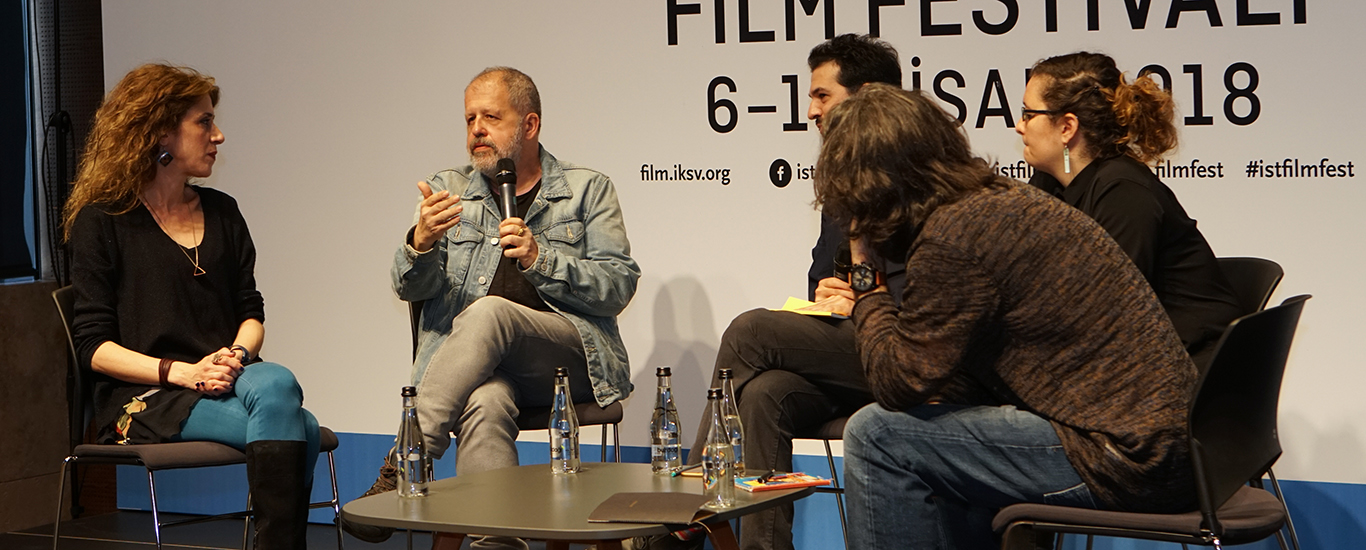Monday, April 9
Criticism makes cinema live forever
Prominent film critics of Turkey, Fatih Özgüven, Kutlukhan Kutlu, Senem Aytaç and Yeşim Tabak came together and shared their experiences at Yapı Kredi Kültür Sanat for the talk “Why Critics Exist,” moderated by Hasan Cömert.
“The film critic, at his best, is a professional movie-goer.”
“When you write what you want to write discussing with yourself, the reader gets what you’re saying. But when you write for the reader’s taste or preferences, then there’s no understanding. I’ve never thought of writing for the reader or seen any distinctions between different areas,” said Fatih Özgüven and added, “When I write a review my main motivation is to be able to relate to the film. It’s important to me to try and have a close feeling with the film, to get really inside its world and to make it narratable to other people. The film critic, at his best, is a professional film watcher. Cinema means being a watcher in all its aspects. Film criticism is the audienceship you achieve with blood, sweat and tears.
“I see the Internet as a blessing for film criticism.”
Kutlukhan Kutlu explained that in the past they had to write the plot of the films, adding: “But I didn’t want to write the plot every time; I wanted to write something completely different.” Kutlu also commented on the relevance of the Internet: “I see the Internet as a blessing for film criticism. Now we’re living in an age where we can really make criticism. Writing blurbs is an epidemic that stayed with us from the old way. If I didn’t have a good memory, I wouldn’t start film criticism. Writing about films seemed magical to me. Cinema is an art form inimical to words. I see cinema as the stuff of dreams, so for me, it’s important to draw it closer to words.”
“It’s becoming difficult to write as well as offering a platform to the people who write.”
Senem Aytaç pointed out that it is important to create space for different voices in this area that is increasingly shrinking: “Independent publishing is hard… We’ve shifted from a time of not being able to find information about films to one where it is now possible. It’s important to try and not use any criterion based on taste… After watching the film, it’s important to invite the audience to have a dialogue and make it circulate.” Aytaç also emphasized the importance of language, explaining that “the production rhythm of the Internet is extremely fast. That’s why I’m very happy that I’m writing for a monthly magazine. Each area has its own language, so you need space to review and regulate it.” She also added that the most problematic area of the Internet is the editorship.
“We’re at a point where the activity of thinking is not very advanced...”
Yeşim Tabak, said that it is time to write the history of cinema again, that the history of cinema can be reread, and added: “I used to see film critics as some people with whom I shared the passion for cinema. All my friends used to buy the newspaper I wrote for. It had a very concrete place in my life. It was from real life, and had a place there that was alive. We’re at a point where the activity of thinking is not very advanced. The activities of the artists and critics as individuals have diminished. The importance or effectiveness hasn’t decreased but the effectiveness of individuals has diminished. There are many productive people but it has no corresponding impact in the material world.
Photo: Ersin Durmuş










